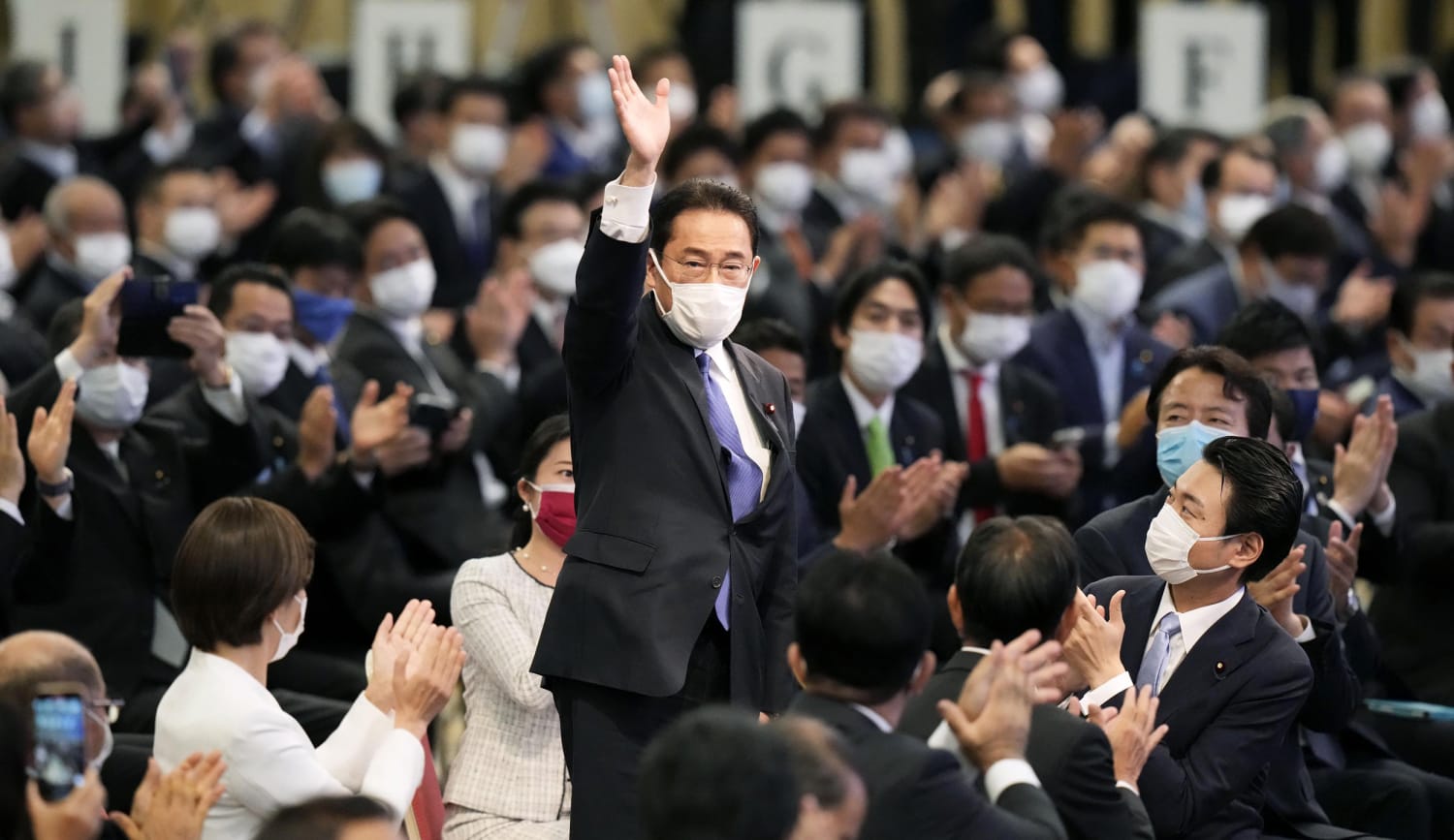HONG KONG — Japan’s governing party on Wednesday elected Fumio Kishida as its new leader and the presumed next prime minister of the world’s third-largest economy and a major U.S. ally.
In an unusually suspenseful race for leadership of the conservative Liberal Democratic Party, Kishida, 64, a former foreign minister, defeated Taro Kono, the minister in charge of Covid-19 vaccines, in a runoff vote.
Lawmakers in Parliament, which is controlled by the LDP, are expected to vote on a new prime minister on Monday. Kishida, 64, will be Japan’s 100th prime minister since it adopted a cabinet system in 1885.
In addition to managing the coronavirus in Japan, which is emerging from its worst outbreak yet, and promoting economic recovery, Kishida will have to work with Washington to address regional security challenges including North Korea’s illicit weapons programs and China’s growing military might.
Departing Prime Minister Yoshihide Suga, who took office just over a year ago, announced his resignation early this month amid public disapproval over his handling of the pandemic. His Liberal Democratic Party, which has ruled Japan for almost all of the past seven decades, hopes a fresh prime minister will help it minimize losses in a lower house election that must be held by the end of November.
Kono, 58, had by far the most support in public polls despite a slow start to the country’s vaccination campaign. But party elders preferred Kishida over Kono, said Jeff Kingston, a professor of history and Asian studies at Temple University in Tokyo.
For them, Kingston said, Kono is “a maverick, loose cannon, doesn’t do what he’s told.”
“He’s provocative and he speaks his mind in a country where often it’s a virtue to keep your opinions hidden,” Kingston added.
Kingston said a win by Kishida, whom he described as “the opposite of dynamic,” could be damaging if the party is seen as overruling popular opinion.
“It makes the LDP look like the party of smoke-filled rooms, which it is, but they’re trying to modernize their image a little bit,” Kingston said.
Though the Liberal Democrats are expected to win the parliamentary election this fall, there have been signs of ebbing support. The party fell short of a majority in a local election in Tokyo in July and lost a mayoral election in Yokohama last month.
There was no sure winner going into the leadership race, which drew four candidates — including, for the first time, more than one woman. Sanae Takaichi, 60, a hardline conservative, was backed by former Prime Minister Shinzo Abe, while the more liberal Seiko Noda, 61, struggled to gain traction.
Along with the economy, the Japanese public is most concerned with the government’s pandemic response. Like many countries in Asia, Japan kept the coronavirus mostly at bay throughout 2020 before suffering its worst outbreaks this year.
Cases peaked in August after Tokyo held the Olympic Games, reaching about 25,000 a day. But daily cases are now 10 percent of that as the vaccination drive has accelerated, and this month Japan surpassed the United States in the proportion of the population that has received at least one vaccine dose. About 58 percent of the population in Japan is fully vaccinated.
Download the NBC News app for breaking news and politics
Suga said this week that the state of emergency in Tokyo and 18 other prefectures would be lifted as planned on Thursday. It will be the first time in more than six months that there are no emergency measures anywhere in Japan.
The country of 125 million people has recorded about 1.7 million cases and more than 17,000 deaths throughout the pandemic, a fraction of the rates in countries like the United States. But the public still expressed dissatisfaction with Suga, and his departure could mark a return to Japan’s revolving door of prime ministers, said Koichi Nakano, a professor of Japanese politics at Sophia University in Tokyo.
Suga’s predecessor, Abe, was in power for almost eight years, making him Japan’s longest-serving prime minister when he stepped down last year for health reasons. Prior to that, Japan had six different prime ministers in six years, including an earlier one-year term for Abe himself.
“People are getting sick and tired of having to bear the burden of fighting against coronavirus where the state is being seen as being completely negligent of the popular plight,” Nakano said. “I think another prime minister having to go after a year of the same is not going to be particularly surprising.”
Arata Yamamoto contributed.
Source: | This article originally belongs to Nbcnews.com











